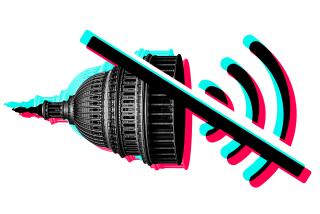SoundScan’s R&B; Blind Spot?
- Share via
Country, hard-rock and rap artists may be thrilled with SoundScan, the record industry’s new sales monitoring system, but several record companies are complaining that it works against R&B; artists.
And we’re talking some big artists:
* Michael Jackson’s sales for his new “Dangerous” album were underreported by as many as 360,000 copies last year, according to Peter Anderson, vice president of sales at Epic Records. If true, this means that “Dangerous” sold almost 2.2 million in the United States in 1991 rather than the 1.8 million reported by SoundScan.
* Hammer’s “2 Legit to Quit” album also sold at least 300,000 copies more than SoundScan reported, insists Lou Mann, senior vice president of sales at Capitol Records. These “lost” sales would also push “2 Legit” over the 2-million mark for 1991.
Executives also charge that dozens of other R&B; artists, including Luther Vandross and Frankie Beverly, as well as some gospel and hard-core rappers, were also shortchanged in the computerized SoundScan system, which replaced the old Billboard system that relied on record store employee estimates to determine weekly sales totals for albums.
The problem, according to the executives, is a blind spot in the SoundScan system: the failure to accurately reflect the heavy sales of some R&B; artists at independent stores--many in black neighborhoods--not affiliated with the SoundScan reporting network.
Does the difference in sales tallies really matter, except to the artists’ ego?
Absolutely, say the executives. Retail stores rely on the SoundScan information when buying, advertising and displaying new product, while radio stations consult it when determining which records to play and how much to play them.
“We’re not knocking the system, but I think it’s important that people realize that SoundScan does not cover the entire sales universe,” Mann said. “Hammer sells very well at the mom-and-pop stores throughout the black community, few of which report sales data to SoundScan.”
Mann and Anderson say their sales estimates are based on orders by more than 2,000 independent record retailers in the black community--stores that aren’t included in the 9,000 outlets monitored each week by SoundScan.
Mike Fine, chief executive officer of SoundScan, stands by SoundScan’s estimates on the Hammer and Jackson albums, but acknowledges that many R&B; artists who sell primarily in the mom-and-pop stores are underreported. But, he says, the company has always pointed out that these stores aren’t covered, and that the problem is being addressed.
SoundScan has more than quadrupled the number of independent retailers reporting to the system since last May, from 35 to 160. The company expects to have 500 more independents on line by early spring--more than 100 of them in black communities.
“We’re not talking about a long-term problem here,” Fine said. “As soon as the equipment is installed, we’ll have it licked. We’re working as fast as we can to alleviate it.”
More to Read
The biggest entertainment stories
Get our big stories about Hollywood, film, television, music, arts, culture and more right in your inbox as soon as they publish.
You may occasionally receive promotional content from the Los Angeles Times.










